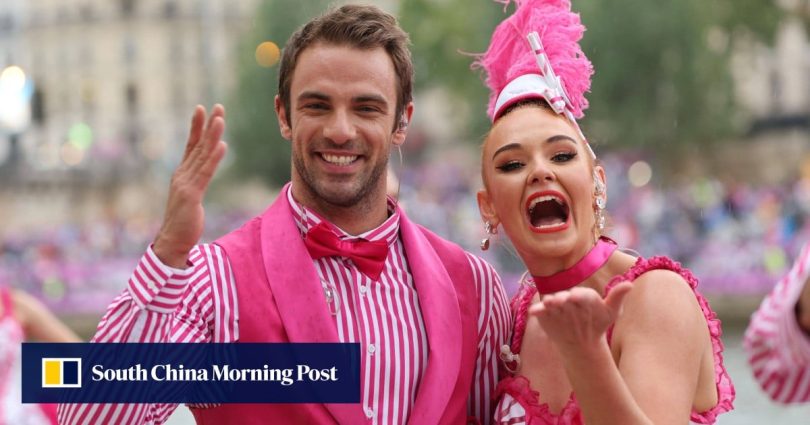The decision by Chinese state television to broadcast LGBTQ related content during the Paris Olympic Games opening ceremony quickly became a hot topic on social media.
Such sights are rare on public platforms given the topic remains a taboo in Chinese mainstream media.
The scene in question, which sparked the most heated discussions on Chinese social media, involved three dancers with a clear romantic relationship.
The group, all in bright-coloured outfits, then began reading romantic-themed French literature in the French National Library.
“This is the only time in life when you can see drag queens and pride-themed performances on China Central Television,” a user wrote on Instagram-like platform Xiaohongshu.
The trio then went up a spiral staircase as they hugged and almost kissed. The scene ended with one of the performers shutting the viewer out with the suggestion the rest of the act would be better performed behind closed doors.
Many netizens believed it hinted at a Menage a trois.
The commentators on the China Central Television (CCTV)’s sports channel, which broadcast the ceremony live, did not say a word during the segment.
Users who missed the awkward moment live feared they would not have an opportunity to view.
However, the clip remained in the edited version on CCTV on Saturday.
The official Olympic Games X account shared an image of the trio with a quote from legendary author Victor Hugo: “The freedom to love is no less sacred than the freedom to think.”
The costume designer of the sequence De Vilmorin, said the trio were a tribute to the French New Wave classic “Jules et Jim.”
But for Chinese netizens, the closer reference is a movie called The Breaking Ice. The clip was labelled the “French version of the Breaking Ice” on Weibo – the Chinese version of X.
Other content that raised discussion included the semi-naked blue singer Philippe Katerine recreating the painting “Jesus Last Supper”, and drag queen Nicky Doll’s performance in the runways.
Many Chinese netizens praised the queer presentation on a global stage, while others questioned whether France put the LGBTQ agenda too high on what was a sporting event.







